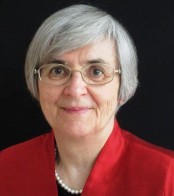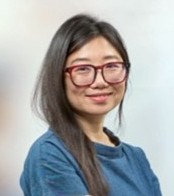 Gabriele Bammer, PhD, The Australian National University, Australia
Gabriele Bammer, PhD, The Australian National University, Australia
Gabriele Bammer is developing the new discipline of Integration and Implementation Sciences (i2S) to improve research strengths for tackling complex real-world problems through synthesis of disciplinary and stakeholder knowledge, understanding and managing diverse unknowns, and providing integrated research support for policy and practice change (see i2s.anu.edu.au). She curates the popular Integration and Implementation Insights (http://i2Insights.org), which allows researchers world-wide to share methods, frameworks, processes, concepts, theories and competencies to better understand and act on complex societal and environmental problems, at the same time building a global community of researchers with this expertise.
Tigran Keryan, PhD, University of Natural Resources and Life Sciences, Vienna (BOKU), Austria
 Tigran Keryan is a postdoctoral researcher at the Institute of Landscape Development, Recreation, and Conservation Planning at BOKU University, Vienna. He completed his doctoral studies at the Doctoral School Transitions to Sustainability (T2S) at BOKU University, focusing on integrating inter- and transdisciplinary approaches into post-Soviet academic institutions. With postdoc experience at the University of Trás-os-Montes and Alto Douro (UTAD), Portugal, he is currently involved in embedding nature-based solutions concepts within universities and assessing ecosystem services through participatory approaches. His research focuses on fostering collaboration among academics, practitioners, and policymakers to develop practical solutions for societal sustainability issues.
Tigran Keryan is a postdoctoral researcher at the Institute of Landscape Development, Recreation, and Conservation Planning at BOKU University, Vienna. He completed his doctoral studies at the Doctoral School Transitions to Sustainability (T2S) at BOKU University, focusing on integrating inter- and transdisciplinary approaches into post-Soviet academic institutions. With postdoc experience at the University of Trás-os-Montes and Alto Douro (UTAD), Portugal, he is currently involved in embedding nature-based solutions concepts within universities and assessing ecosystem services through participatory approaches. His research focuses on fostering collaboration among academics, practitioners, and policymakers to develop practical solutions for societal sustainability issues.
BinBin Jiang Pearce, PhD, Delft University of Technology, The Netherlands
 BinBin Jiang Pearce is an Assistant Professor for policy analysis and design at Delft University of Technology, in the Faculty of Technology, Policy and Management, based in the Netherlands. Her research interests include public participation processes in the energy transition, policy design for the energy transition, collaborative decision making for sustainable development, joint problem framing processes, integrated systems and design thinking. She is the coordinator and lead principal investigator of the Horizon 2020 project Energy Citizens for Inclusive Decarbonization (ENCLUDE). She was trained as an environmental engineer at Stanford University and received a PhD from the Yale School of Forestry and Environmental Studies focused on urban metabolism and industrial ecology.
BinBin Jiang Pearce is an Assistant Professor for policy analysis and design at Delft University of Technology, in the Faculty of Technology, Policy and Management, based in the Netherlands. Her research interests include public participation processes in the energy transition, policy design for the energy transition, collaborative decision making for sustainable development, joint problem framing processes, integrated systems and design thinking. She is the coordinator and lead principal investigator of the Horizon 2020 project Energy Citizens for Inclusive Decarbonization (ENCLUDE). She was trained as an environmental engineer at Stanford University and received a PhD from the Yale School of Forestry and Environmental Studies focused on urban metabolism and industrial ecology.
Marianne Penker, PhD, University of Natural Resources and Life Sciences, Vienna (BOKU), Austria
 Marianne Penker is a Professor for Rural Sociology and Rural Development at the BOKU Institute for Sustainable Economic Development and chair of the UNESCO Man & Biosphere National Committee at the Austrian Academy of Sciences. As a sustainability scientist, she is committed to inter- and transdisciplinary research supporting transformative solutions in rural areas in Europe and beyond. Her work, which largely builds on Ostrom’s Social-Ecological-Systems framework, has changed the way people think about agri-food governance and the integration of diverse types of academic and stakeholder knowledge. Via the network of European Academies, she contributed to the SAPEA report on a sustainable food system for the EU and presented its results in front of the European Parliament.
Marianne Penker is a Professor for Rural Sociology and Rural Development at the BOKU Institute for Sustainable Economic Development and chair of the UNESCO Man & Biosphere National Committee at the Austrian Academy of Sciences. As a sustainability scientist, she is committed to inter- and transdisciplinary research supporting transformative solutions in rural areas in Europe and beyond. Her work, which largely builds on Ostrom’s Social-Ecological-Systems framework, has changed the way people think about agri-food governance and the integration of diverse types of academic and stakeholder knowledge. Via the network of European Academies, she contributed to the SAPEA report on a sustainable food system for the EU and presented its results in front of the European Parliament.
Michael O'Rourke, PhD, Michigan State University, USA
 Michael O’Rourke is Professor of Philosophy and Faculty in AgBioResearch and Environmental Science & Policy at Michigan State University. He is Director of the Toolbox Dialogue Initiative, an NSF-sponsored research consortium that investigates philosophical approaches to facilitating interdisciplinary research (http://tdi.msu.edu/), Executive Director of the Toolbox Dialogue Initiative Center, a new service center at MSU that is the principal locus of Toolbox work, and recently directed the MSU Center for Interdisciplinarity. His research interests include interdisciplinary theory, epistemology, communication and epistemic integration in collaborative, cross-disciplinary research, and linguistic communication between intelligent agents.
Michael O’Rourke is Professor of Philosophy and Faculty in AgBioResearch and Environmental Science & Policy at Michigan State University. He is Director of the Toolbox Dialogue Initiative, an NSF-sponsored research consortium that investigates philosophical approaches to facilitating interdisciplinary research (http://tdi.msu.edu/), Executive Director of the Toolbox Dialogue Initiative Center, a new service center at MSU that is the principal locus of Toolbox work, and recently directed the MSU Center for Interdisciplinarity. His research interests include interdisciplinary theory, epistemology, communication and epistemic integration in collaborative, cross-disciplinary research, and linguistic communication between intelligent agents.
Prospective authors may contact the Guest Editors via email:

